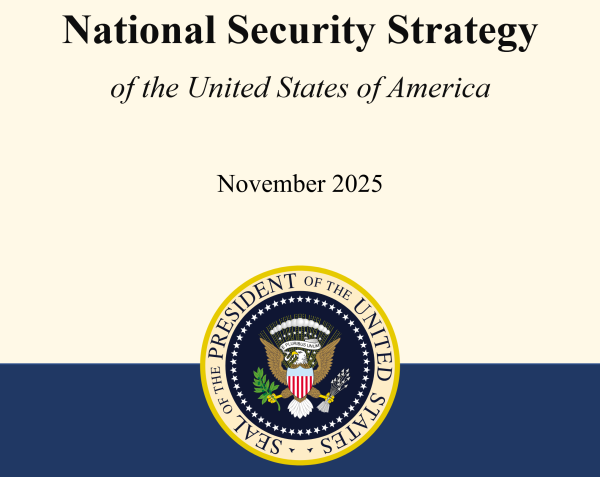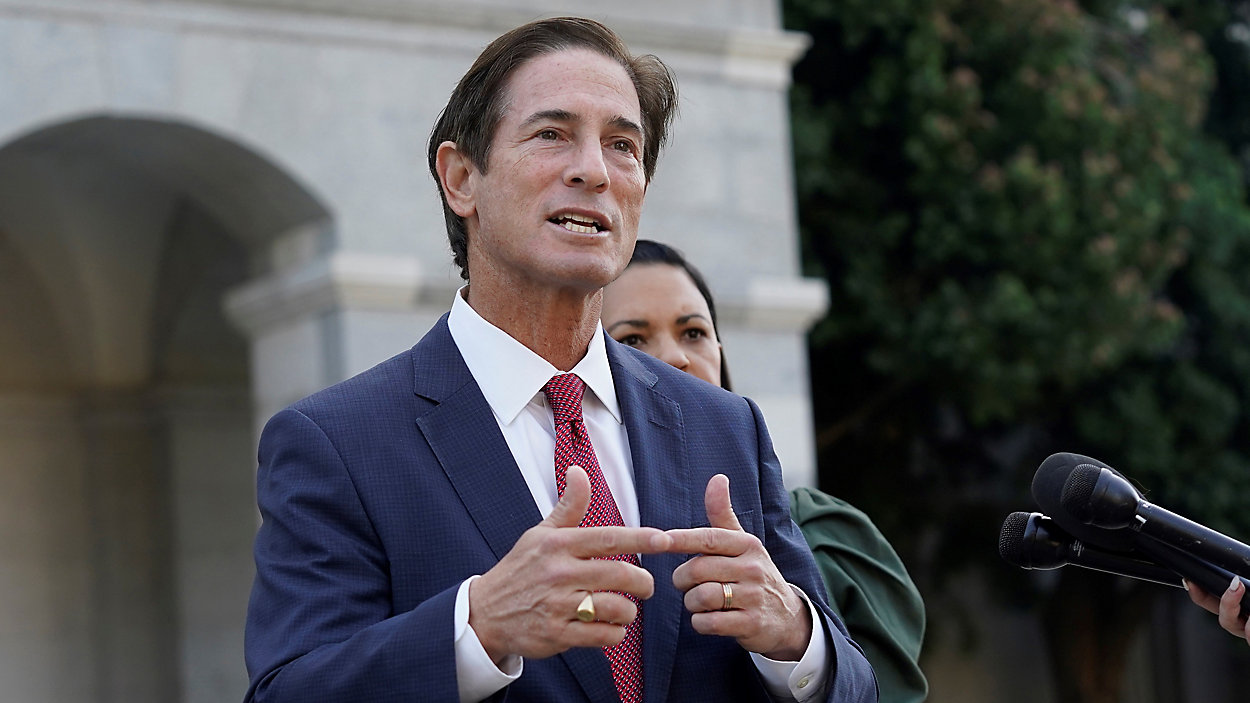Born and raised in St. Louis, Paul Heyne (1931–2000) began his higher education as a divinity student at the local Concordia Lutheran Seminary and became an ordained minister, though never a pastor. He then earned a master’s degree in economics at Washington University in St. Louis, and a PhD in Ethics and Society at the University of Chicago. He spent most of his adult life teaching economics while retaining a deep interest in questions of ethics. He championed the free market, which he viewed as a means to the attainment of more fundamental ends.
Over his career, he taught in the economics departments of Valparaiso University, Southern Methodist University, and the University of Washington in Seattle (where I observed his lectures to hundreds of introductory economics students and occasionally to receptive community audiences in the Seattle area).
During his 24 years at the University of Washington, he was—by his own choice—a non-tenure track lecturer, teaching the large introductory economics lecture class for many years. Eschewing the “publish or perish” treadmill as he did, he nonetheless wrote one major economics textbook that went through thirteen editions, numerous refereed scholarly articles, and a book of essays published posthumously by two of his colleagues.
Echos of the Austrian School and Adam Smith
Shortly before he died, Heyne wrote that he had “wandered into economics in the 1950s as a divinity student interested in social ethics.” He then “gradually became an economist with an interest in ethics rather than an ethicist with an interest in economics.”
Heyne was not the only ethicist who transitioned to economics. The Scotsman Adam Smith—who identified himself as a moral philosopher with his 1759 book The Theory of Moral Sentiments—later published An Inquiry into the Nature and Causes of the Wealth of Nations in 1776, and became recognized as the founder of economics as a discipline, though it was normally known as “political economy” during its first 100 years. Although Heyne was not explicitly identified as part of the Austrian School, his ethics-and-economics approach to fundamental issues shared much in common with Austrians Friedrich von Hayek and Ludwig von Mises.
Demonstrating his deep understanding of economics as a discipline with a long history, in 1996 Heyne favorably reviewed Murray Rothbard’s two-volume book An Austrian Perspective on the History of Economic Thought for the Independent Review published by the Independent Institute. In the review he related Rothbard’s Misesian treatment of economic thinking to the earlier work of Adam Smith, David Ricardo, John Stuart Mill, and his father James Mill, while recognizing the potentially destructive outcomes of Marxism.
Heyne’s Economic Way of Thinking
Heyne is arguably best known for his introductory economics textbook The Economic Way of Thinking, first published in 1973 and later in twelve additional editions. It is unique for its complete departure from the usual massive textbook tomes typically divided into two main sections—microeconomics and macroeconomics—each containing hundreds of pages, mathematical equations, and abstruse diagrams, enough to put the average undergraduate to sleep for an entire semester.
Instead, Heyne’s eminently readable text The Economic Way of Thinking is perfectly suited to introductory economics students who typically take one economics class to round out their liberal arts exposure and ideally leave college with some grasp of the discipline’s relevance to critical thinking. Instructors who have taught from the book all tend to rave how well students could relate to—and learn from—the text.
The textbook is currently available online as a free PDF download with the following comment that it,
…goes beyond explaining the basic principles of micro and macroeconomic analysis by showing readers a method of reasoning that teaches them how to apply these principles as tools. It exposes readers to a method of reasoning that makes them think like an economist through example and application, and also shows them how not to think by exposing errors in popular economic reasoning.
Translated versions of the book became popular in Russia and former Soviet countries Czech Republic, Romania, and Hungary. It sold 200,000 copies in Russia alone.
Merging Ethics and Economics
Another Heyne book, Are Economists Basically Immoral? and Other Essays on Economics, Ethics, and Religion, is an anthology of his essays compiled by Geoffrey Brennan and A.M.C. Waterman and was published posthumously in 2008. It is out of print, though portions are available online in PDF format. In it, Heyne addresses such tantalizing public policy conundra in which economics and ethics intersect:
People should pay monetarily to drive their cars into and through cities, rather than paying in terms of congestion time behind the wheel;Trains are fun to ride but are no solution to problems of urban congestion;Parents should be given vouchers to spend at any school they choose for their children, public or private, and the principals of the public schools should be assigned full authority and responsibility;Environmentalism has become a dogmatic, fundamentalist, persecuting religion that will keep communities from ameliorating environmental problems;Urban neighborhoods should be privatized in any and every way possible;Markets alienate people but also provide the only way to secure freedom and prosperity in modern societies;Blood and organ donors should be allowed (and encouraged) to accept monetary compensation in order to ration the available amounts of these scarce resources;There should be no restrictions on what foods (including sugary drinks) can be purchased with food stamps, regardless of what a nanny government might consider the most nutritious foods;Recycling cans and bottles should be balanced against the costs of time and effort expended and water consumed;Recreational drugs should be legalized with the stipulation that no one has the right to use them in a way that imposes costs on other people (this guideline addresses the ethical conundrum of a pregnant woman’s taking drugs that can harm her unborn child)
Because he practiced his economist-ethicist profession decades ago, it’s unclear how Heyne would come down on today’s cultural issues, such as the relatively recent “trans” movement that colors our society today. He would most likely leave such decisions as hormone and surgical treatment to individual choice, but preclude spending public taxpayer funding for such procedures. It is unclear, though, how he would balance minors’ gender dysphoria with parental rights. He and his wife themselves had five children.
Heyne’s textbook lends itself to lively class discussions around issues of this type. Teaching introductory economics students myself using Heyne’s textbook, I observed that the book enabled students to see both sides—the economic arguments and the underlying ethical concerns—of issues. One such class discussion concerned a recent state government policy that would require free tickets, offered in limited numbers on a first-come first-served basis, in order to hike in a popular pristine forested area of the Cascade Mountains of Washington after crowds of hikers had begun trampling and damaging the native plants.
Students were able to argue both sides of the issue, questioning the cost to those who were unable to stand in line for free tickets to go hiking, but also acknowledging the value of conserving forest ecology to maximize the number of hikers who could enjoy hiking in the forest over time.
A Loss to the Profession and to Economics Instruction
Heyne’s death at age 68 shortly after a diagnosis of kidney cancer was a great loss to the profession and to economics instruction. Many at the University of Washington expressed the great value of his teaching, research, writing, and community service. He was a popular teacher, having received the university’s best teaching award.
He himself identified five key concepts that define what it means to think “economically,” namely, economizing actions, marginal decisions, opportunity costs, interactions that coordinate the actions of economizers, and markets and prices. He stated the basic assumption of the economic way of thinking in one sentence: “All social phenomena emerge from the choices of individuals in response to expected benefits and costs to themselves.”

























